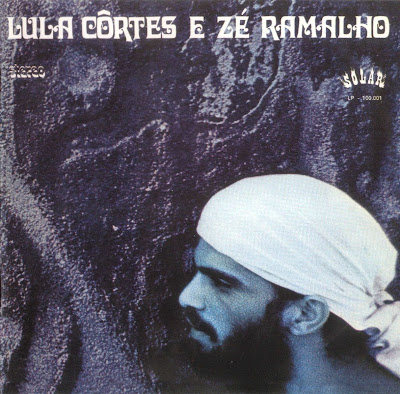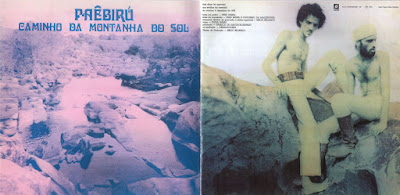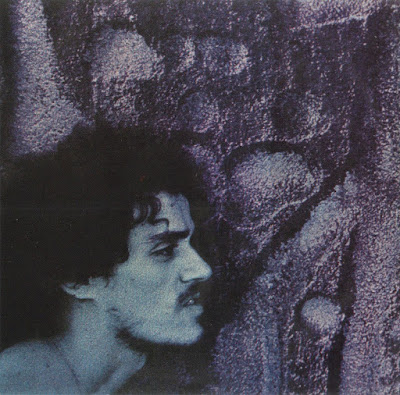


SHADOKS 043
Terra
1 Trilha De Sumé 6:30
2 Culto À Terra 2:11
3 Bailado Das Muscarias 4:32
Ar
4 Harpa Dos Ares 4:01
5 Não Existe Molhado Igual Ao Pranto 7:30
6 Omm 6:01
Fogo
7 Raga Dos Raios 2:30
8 Nas Paredes Da Pedra Encantada 7:33
9 Marácas De Fogo 2:32
Água
10 Louvação A Iemanjá 1:53
11 Regato Da Montanha 3:24
12 Beira Mar 1:39
13 Pedra Templo Animal 4:15
14 Trilha De Sumé 2:04
Liner Notes - Lula Côrtes , Raul Cordula
Mixed By, Technician, Effects [Special] - Hélio Ricardo
Photography - Fred Mesel , Paulinho Da Macedonia
Producer - Hélio Ricardo
Recorded Rozenblit studios between October and December 1974
Originally released in 1975 in Brazil as a double LP
hype:
'Thanks to cult-creating stories about how nearly all original copies of this Brazilian double-album effort from 1975 were lost in a fire, Paebiru is one of those records that has to overcome a reputation -- it has to actually be good because it's good, not because it's rare. The 2005 re-release on Shadoks gave a chance for that concern to be addressed, and it must be said: Paebiru really is a fantastic album. With each of its original four sides named after the legendary four elements (earth, air, fire, water), Paebiru looks to aim high and does so pretty well, but the more telling thing about the album is how well Lula Côrtes and Zé Ramalho's work fits in the present day. Thanks to the continually reviving psych/freak/acid folk/jam scene, one could play most of this album next to the Sunburned Hand of the Man and Animal Collective discs with nobody blinking -- but the key difference is probably that Cortes and Ramalho, plus their many collaborators, are really sharp musicians and arrangers. There's a talented, easy fluidity about Ramalho's singing that, if rougher, isn't far removed from classic Brazilian pop singers of his time, while the most intense moments, such as the building multi-percussive/feedback freakout of "Culto a Terra," stand up readily now as they did then. Elsewhere, the beautiful, almost serene compositions interspersed throughout ["Bailado das Muscarias," which definitely is a dance tune regardless of lack of percussion; the blending of harp, flute, sax, and more on "Omm"] create something pastoral and with a romantic late-night lounge feeling. The resultant blend of approaches and the variety throughout the album become more apparent even while each song is simply captivating on its own, and when they decide to conventionally rock out on "Nas Paredes da Pedra Encantada," the result is almost Can-like." ~ Red Naggett
R.I.P. Lula Côrtes [1950-2011] Satwa


No comments:
Post a Comment